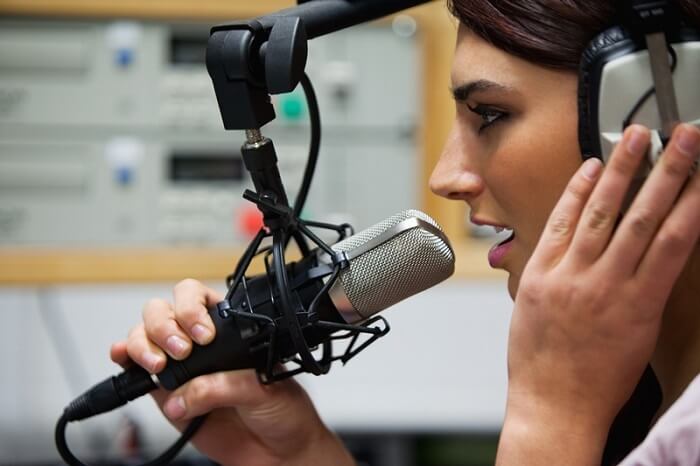
How to Do a Brooklyn Accent 101
Home » Blog » Tools & Resources » How to Do a Brooklyn Accent 101A very popular accent that will be called upon often during your acting career is the New York, or Brooklyn accent. Thus, this is a good accent to practice and get under your belt even if you are not actively learning it for a current audition role. Even so, many actors do not know how to do a Brooklyn accent. This can be a great way to step ahead of your competition and be prepared with your accent all perfected and waiting on deck to be used on the drop of a hat. Plus, many casting directors will be impressed that you took the time to prepare such a tool for use when it is needed.
When learning how to do a Brooklyn accent, it is important to learn the accent by the distinct way vowels and consonants are pronounced and used in everyday speech. This article will direct you on how to recognize and adjust your pronunciation so that you can learn how to do a Brooklyn accent for your next audition.

There is a bit of discrepancy on accents found in New York. Depending on who you ask, a Brooklyn accent is a more rough and thick version of a New York accent. In fact, if you ask a native, they will often tell you that you can tell which of the five boroughs (Bronx, Queens, Brooklyn, Manhattan, or Staten Island) a person is from in New York by their accent. Linguists disagree with this notion mostly because of all the immigrants that came to New York and how the Natives have dispersed over the years.
So, if there is no real “Brooklyn” accent, how do you answer the question of how to do a Brooklyn accent? First, it would be a good Idea to find out how thick of a New York dialect is called for in relation to your character. Have a chat with your director and ask them specifics about their preference on what they want your character to sound like or portray. Learn your characters socioeconomic standing. This will actually help direct you towards the proper dialect. If all else fails, learn a general modern New York accent and adjust it accordingly once you find out where your accent should be.
The Best way to start learning how to do a Brooklyn accent is to take the time to just listen to some native New York speakers. Watch videos of newscasts where native New Yorkers are being interviewed so that you can hear raw examples of the accents. Many political figures also sport different levels of a New York accent such as Donald Trump and Bernie Sanders. Hear how thick and edgy some dialects are versus others that are more sing-songy. Watching interviews is also a great way to pick up on how a native New Yorker gestures and gets into a conversation. Pay attention to how vowel sounds change and the tempo and timber in the speaker’s voice. All of these small clues can be extremely helpful to keep in mind as you develop your own Brooklyn accent.
After listening to some Native speakers, you may have picked up on a certain vowel sound that is characteristic of a New York accent, and that is the “aw” sound. Typically this vowel sound is very dominant in speakers from the Greater Metropolitan area. For example, the word coffee will pick up that “aw” sound and you will hear it like “cawwfee.” This is because Brooklyn and other New York accents are very diphthongal. A diphthong is a vowel sound that consists of more than one basic vowel sound mashed together. In the “cawwfee” example, there is a combination of an “ah” and an “oh” sound that blends together to give you that “uh” sound in the word. This vowel variation is an important one to be aware of.
Another dominant aspect in a New York accent is the elimination of the “r” in words where it is the final sound. This is often called “non-rhoticity.” When you listen to native speakers as you learn how to do a Brooklyn accent, you will definitely notice the r-dropping. Think of asking directions to Rockefeller Center. How would a New Yorker respond? More than likely, they would pronounce it as “Rockefellah Centah.” Or give you directions so you can get there by “cah.” R-dropping is not a strange thing exclusive to New York speakers, think of people from Boston who do their own version of it or some southern dialects that also are prone to dropping that final r sound.
Another consonant change you will come across as you learn to do a Brooklyn accent is the “th” sound. When you think of a typical “th” sound, it comes in two forms- hard and soft. A hard “th” sound exists in words like “that” or “the.” A soft form of “th” is in words like “think” or “thigh.”
Due to the fact, you can utter this consonant sound as long as you have air to make the sound as long as you want. That appears by placing your tongue between your teeth and specialists name it an interdental fricative. A New York or Brooklyn accent will usually take this “th” sound and create a stop by using a harder consonant as a replacement such as a “d” or a “t” sound. For example, the word “the” will sound like “duh” and the word “thought” will become “taught.”

Listen to a speech by Donald Trump and you will likely pick up on this next consonant change. It is very distinct as you can only find it in a New York dialect. This consonant change is the replacement of the letter “h” sound to that of a letter “y.” Think of the word “human” being pronounced as “youman.” No one can explain why a typical New York accent does this but linguists explain it as a lazy alternative to producing the “h” sound which requires that you produce an impediment to your airflow by using your tongue as an obstacle. Utilizing a “y” sound eliminates that need allowing an easy flow into the rest of the word.
If it is within your means, many actors take their research on the road. Visiting New York is a great way to immerse yourself in a similar way that someone learning a new language would. Take the time to watch people as they speak and listen to their inflections, pace, and the nuances in their pronunciation. Go to local hangouts where you may even be able to compare and contrast accents from different boroughs. Make sure to take a notepad with you so that you can jot down any notes on things you notice that can help guide you through the process.
If you find yourself having difficulty getting your accent right or you end up in a time crunch for an upcoming role or audition, there is no shame in finding the outside help of a vocal coach. Vocal coaches know what a particular accent should sound like. They can give you real-time feedback and streamline your learning to get your accent on the right track. They can also give you vocal exercises that cater to your needs and speed up the process. Of course, this will not be an option for all since it does cost money to hire a coach. However, if it is within your means, a vocal coach can really be a terrific asset while you learn how to do a Brooklyn accent.
Here you have a clip showing you some more tips and tricks:
Often times you will need to perform your lines using an accent that is not native to you. One such accent is a Brooklyn or New York accent. It is a popular accent you can find in many films, especially period films, political roles, and even old-school mobster roles. Being that it is so popular, you may want to have a good handle on it even before you must use it. Keeping in mind these few tips while you learn how to do a Brooklyn accent will help you get well along your way to sound like an authentic speaker.
Have you ever needed to learn a New York style accent to use during an audition? How difficult did you find it to be when compared to other accents you learned for other parts? Please feel free to leave any helpful tips and tricks you found from your experience to work well while you learned a new accent.